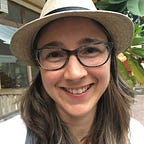Making Sense of the Pandemic and 2020
Zach Bush helps to reframe the pandemic.
I’m a huge fan of Zach Bush. He has a way of putting into words things I can’t quite articulate. When I heard his monologue now entitled “the best monologue EVER” on the Rich Roll podcast, my fan-status was solidified. I try to keep an eye out for anything he publishes and his website contains a wealth of information.
Recently he did an overview of 2020. It encapsulated so beautifully what was and why it was without pointing any fingers; simply recognising that people are doing the best they can with their current resources and paradigms.
Here are a couple of things that struck me as interesting and different perhaps from the constructs we have learnt from our governments and international media.
The Corona Virus Has Been Around for a Long, Long Time
The most interesting nugget for me was that the virus that shook the world in 2020 and that continues to disrupt our economies, our children’s education, global travel and much, much more, is something that has been around for a very long time. It’s nothing new. I guess that’s why it carries the identifier 19 and not number 01.
On top of that, Zach shows how the data that was shared with the public was incomplete and often misleading. He demonstrates how to compare data and better understand data in context. We — the general public — need to learn how to ask better questions and, to consider statistics in context.
In the past, we trusted those in the medical profession, our politicians and those reporting on our world. Perhaps things were slower back then and people in the know had time to fact check. Today, it feels as if information flies at such speed that we can’t trust it. At least, a dollop of scepticism is called for. It’s not such a bad thing — it’s high time we took responsibility for our health and wellbeing not to mention our own thoughts.
In our home, scepticism runs high. My husband constantly comments: “but that doesn’t makes sense” or “look at the fine print — that South African study uses ‘x’ while the rest of the world uses ‘y’. They’re not comparing like for like.” If you’re fascinated by the numbers and would like someone to straighten them out for you, I’d recommend watching the “What Happened Last Year — a Macro Look” webinar replay. It’s useful and brings perspective to what has become emotive and unsubstantiated.
The Virus Is Airborne
Another interesting fact for me was that if we were to have had absolutely no travel at all, the virus will still have spread. Yes, the rate would have been different, but viruses are airborne and travel regardless. So, the questions arises — what makes things worse in some places. Why are some countries and some populations more severely affected?
Here, Zach points to pollution — to bad water and air quality caused by Glycosphate and other pollutants and the terrible fires that ravaged places in 2020. When the toxic load becomes too much, people are increasingly vulnerable. A toxic load and a viral load — that’s a lot to contend with.
The Malaria Drugs that Trump Took Were a Good Idea
Zach explains that when the pandemic first hit, doctors thought that they needed to get oxygen to those they were treating as they were presenting blue and short of oxygen. However, this didn’t solve the problem as the real problem lay in the fact that people could not access the oxygen they had.
The virus causes damage to red blood cells. It changes the shape of haemoglobin which means that it is no longer able to carry oxygen. A similar situation arises when a person is poisoned by cyanide. The drug which is used to treat an affected red blood cell is the same drug that is used for treating malaria. Restoring red blood cells to health is an effective way of getting oxygen back into the body.
There are a good number of other factors that increase the potential severity of the virus and unfortunately, these factors are rife. Stress, anxiety, vitamin D deficiency and a lack of sleep all deplete our ability to defend against the virus. Another potential problem is statins. The ACE2 receptor allows SARS-CoV-2 to gain entry into host cells. Unfortunately, statins enhance ACE2 receptors. Not only do we live lifestyles that promote ill health, but we destroy the Biology that would protect us.
A Few Comments on What to Do Next
Things don’t make sense, but sometimes there is little one can do. In South Africa, you can go to a gambling house and attend religious ceremonies of up to 250 people, but you can’t spectate at sports matches be they indoors or outdoors. It doesn’t make sense. There are so many examples of this the world over.
Recognise where you can make a difference and recognise where your complaining is simply making you terribly hot under the collar and not achieving a thing. We’re all feeling angry or overwhelmed or a sense of loss. You’re absolutely right to feel what you feel. Find a constructive way to let the feeling pass. Go for a run. Put up a punching bag and use it! Turn up the music and dance.
Focus on what you can do — eat well, move well, sleep well. Drink water. Plant a vegetable garden. Connect to nature. Spend time with your children. Share healthy habits. There is so much we can do — and it all needs doing urgently.
